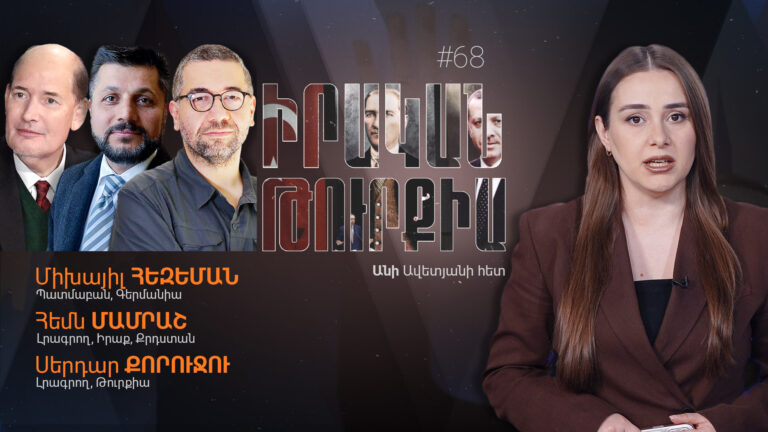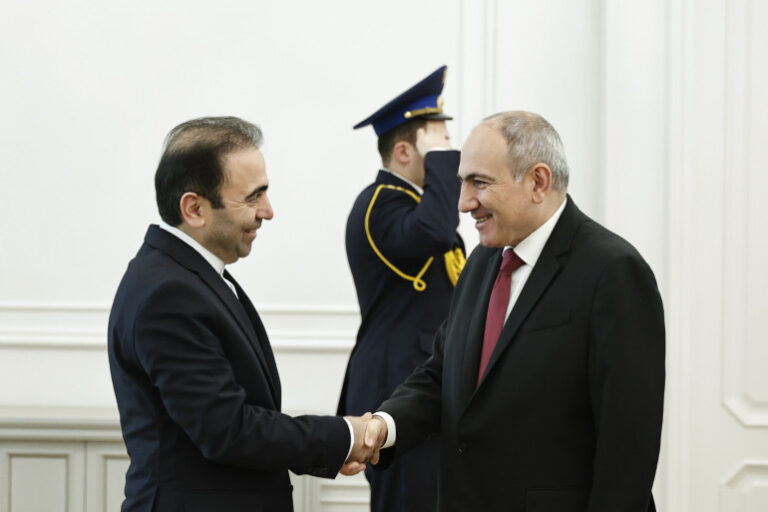Gevorg Danielyan: The Armenian Criminal Code could not apply to the Azerbaijani who killed the old man in Hadrut
The Armenian Criminal Code could not apply to the Azerbaijani who killed the old man from Hadrut, lawyer and former Minister of Justice Gevorg Danielyan told Alpha News.
According to him, versions put into circulation are far from having a legal basis, although they stem from inappropriate official statements.
“I would like to single out the point of view according to which, if the competent law enforcement agencies of Armenia had not shown negligence and promptly sent extradition documents, the competent authorities of Russia would not have released this criminal, and he, according to the already sad tradition, would not have returned to Azerbaijan and would not have been made a hero.
It is clear from the footage that the subject was expectedly greeted as a national hero, which is a well-developed scenario in their pathetic situation. Let us remember how Ramil Safarov, the main organizer of crimes against humanity in this country, was greeted by Aliyev as soon as he got off the plane. I would like to note that the problem is not at all with the quality or validity of these documents, much less with timely or late submission, but with the statement of the Armenian Ministry of Internal Affairs that it, nevertheless, will hand over the documents to the competent authorities of Russia after the release. In my opinion, it has more political than legal implications,” Danielyan said.
The lawyer emphasized that the criminal code could not be written in such a way as to apply to the Azerbaijani who committed this criminal act.
“The primary problem is completely different. Firstly, can the Armenian Criminal Code be applicable to the crime committed by this subject? This cowardly creature, an Azerbaijani national, committed a criminal act by beheading a helpless old man in Hadrut, recognized, unfortunately, by the Armenian authorities as the territory of Azerbaijan. If we add to all this that we do not officially recognize Artsakh people as citizens of Armenia, I believe the picture will become complete.
It turns out that according to formal legal standards, criminal legislation cannot apply to actions committed on the territory of another state by a citizen of another state against a citizen of another state. Could we have drafted the Criminal Code in such a way that it would apply to such acts? No, we couldn’t.
Even if we theoretically adopted such a law, it would still not be considered a legitimate and sufficient legal basis because, when making decisions on extradition, states are obliged to be guided not by national legislation but by the Convention on Extradition, which excludes such rules.
Did law enforcement agencies act correctly by bringing charges under national legislation while understanding the potential legal implications? Yes, they did. Another problem is that, politically, these interests no longer have a single perception and set of standards. I believe that in this case, officials of the Armenian Ministry of Internal Affairs are doing the right thing by sending materials to the Russian Federation, since the real facts of crimes against humanity committed by the Azerbaijani authorities should be kept fresh on international platforms,” he noted.
According to Danielyan, the Rome Statute should be used for its intended purpose.
“Finally, this monster did not take inhumane steps on his own. He was clearly guided, and now he is being glorified at the state level. In order not to find ourselves in such unpleasant dead ends in the future, we must implement the recently ratified Rome Statute with the same consistency; it must pursue Aliyev everywhere and give him no rest.
We ratified the Rome Statute with this vision in mind, but limited ourselves to discussions, like in the pointless show, about arresting Putin on the basis of the statute. There are no grounds for Putin’s arrest, since this is already excluded by the EAEU documents. Let’s leave it to those who love the show. Our main task is to implement the Rome Statute for its intended purpose,” Danielyan concluded.







